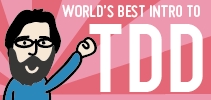Slack's Role in Managing Software Projects: Revisited
Summary
When I first read the “Slack” section of Extreme Programming Explained, nearly 20 years ago, it shocked me. It instantly repelled me. Over time, however, I have seen the wisdom of that approach and I’d like to share that wisdom with you.
I remember reading Extreme Programming Explained, the second edition, and being surprised by the advice to put extra stories/tasks into the weekly iteration plan to use as ballast in the face of unplanned work. It seemed to me at the time like sandbagging—intentionally doing less than we could actually do. I didn’t understand the purpose of it.
At the time, I thought, “If we’re going to add more items into the weekly plan, then why not merely add the next stories in the priority list?!” Why would we choose to do anything but whatever would come next, especially since we assumed (thanks to Yesterday’s Weather) that we almost certainly wouldn’t get there anyway?
I didn’t understand much at the time about the psychological factors involved.
Now, I think of it like this:
- It’s wise to put some items in the weekly plan that we don’t feel confident we can finish, just in case we get lucky and finish early what we expected to finish.
- It’s risky for the extra items in the weekly plan to be items that the stakeholders care deeply about, because we’re setting them up for constant disappointment when we suggest that we might finish items that they care about, but routinely don’t finish.
- It’s therefore wise for the extra items in the weekly plan to be items of significance that are not yet urgent, because there is a small chance that we might get to them, and if we don’t take advantage of that opportunity, then we might never get around to them… until they become urgent problems for us.
It would probably help everyone if our stakeholders never treated our weekly plan like a commitment, but that’s not how most people behave. Even the most attentive, caring, and collaborative stakeholders are humans and humans are easily disappointed. We react more sharply to loss and remember it longer than we do getting more than what we expected. I think it’s wise to choose an approach that reduces the likelihood of disappointment, all other things being equal.
After all, we always have the option of changing our minds and squeezing in a high-value story at the end of the week, thereby delighting some of the stakeholders. That sounds helpful, no?


